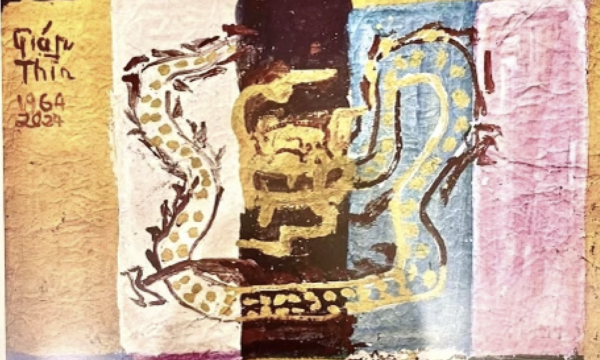The Myth of Sysiphus by Albert Camus
Albert Camus, an Algerian philosopher from the 1940s, was only twenty-nine when he published his first philosophical essay, ‘The Myth of Sisyphus,’ about absurdism. It is an interesting essay, not because it discusses the purpose of our existence, but because it follows a unique perspective and set of arguments that haven’t been encountered before. This can be clearly seen in the first sentences of the essay: “There is but one truly serious philosophical problem, and that is suicide. Judging whether life is or is not worth living, that is the fundamental question of philosophy.”
He begins the essay with his trademark term of ‘The Absurd.’ He states that this is to describe the fundamental contradiction between people’s innate desire to find meaning, clarity and purpose in everything, while living in a world of indifference. Camus says that each one of us can come to the shearing realization of the meaninglessness of existence. But he adds that after the realization, we must ask ourselves how do we proceed in life, if there is no meaning?
Camus proposes three common choices people make when they face an existential crisis. The first one is suicide in the literal sense; This is when people admit that life is not worth experiencing, and follow through with physical termination. However, existentialist philosophers, including Camus, advise against this option. The second option Camus discusses is philosophical suicide, or the ‘leap of faith,’ which refers to believing in abstract ideologies like religion. Camus personally disregarded this option, as he believed that God didn’t exist and couldn’t be a source of existence; he explained that even if God were to exist, he would be a psychopath, as he promised to keep humans away from harm but let them indulge in suffering every day, which would make religion ironically more absurd. What makes Camus unique, is that he contradicted the common response existentialist philosophers have regarding the meaning of life, such as Søren Kierkegaard’s and Jean-Paul Sartre’s, who suggested that philosophical suicide is a viable solution to an existential crisis.
The question is if two outcomes, both abstract and physical suicide, are an inadequate way of responding to existence, what is the best way to cope? Or why should we even think about this at all? Though scientific evidence proposes that religion did not play a major role in the creation of our world, many agree that it brought some clarity for the unexplainable. Without this clarity of faith and destiny, people started experiencing the meaninglessness of life and didn’t know how to cope with it. Camus’s solution for this is to embrace the absurdity of life and let it motivate people to live their lives to the fullest.
At the end of his essay, Camus introduces the myth of Sisyphus to demonstrate his point. Sisyphus was a Greek mythological figure, who committed atrocities against Zeus and was punished for eternity by rolling up a rock on a hill and seeing it fall down in perpetuity. Camus uses this to represent the repetitive absurdity of all of our lives, as we follow an established routine for the most part until death. As it is grim to face the similarities between Sisyphus and our lives, Camus suggests embracing absurdity and enjoying life to the fullest, as he said in his famous formulation, “One must imagine Sisyphus happy.”





Yann Nguyen • Aug 22, 2022 at 10:37 pm
Great insights.
– Yann
PS: please email me @ nguyenkhacdanh44@gmail.com, I’m trying to regain contact with you.